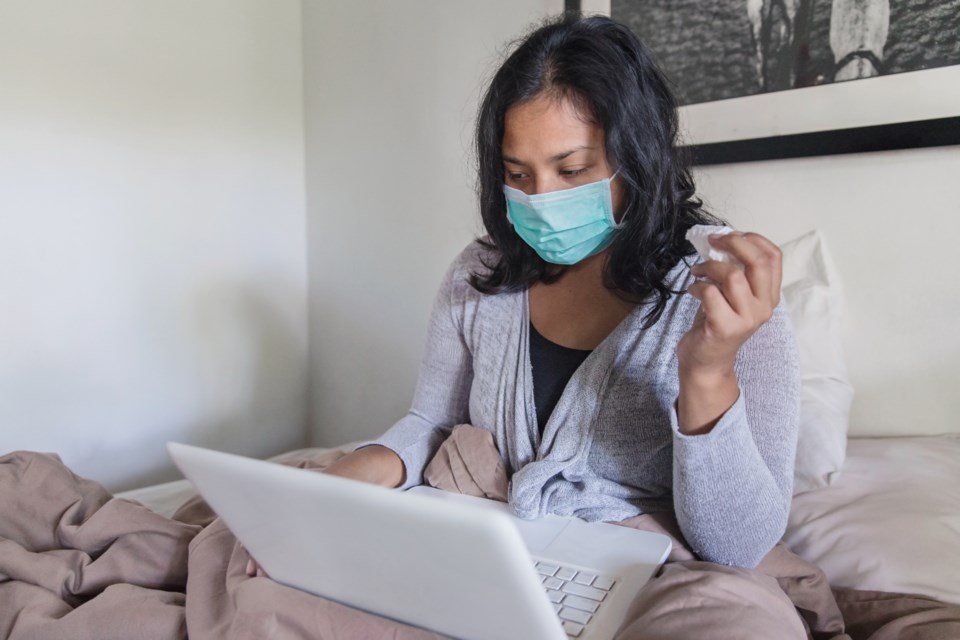Whistler leaders and labour advocates welcomed new legislation introduced in B.C. this week that guarantees paid sick days for workers—but questions remain over the long-term cost to small businesses already feeling the pinch of the COVID-19 pandemic.
Tabled by labour minister Harry Bains on Tuesday, May 11, the legislation guarantees three days’ paid leave for workers dealing with COVID-19 through an amendment to the Employment Standards Act.
The leave applies to employees experiencing COVID-19 symptoms, self-isolating or awaiting a test result.
The province will reimburse employers without an existing sick-leave plan, up to $200 a day for each worker.
By January 1, 2022, the legislation will be extended to anyone who cannot work due to any illness or injury—not just the coronavirus.
While she welcomed the news of a COVID sick leave program for the resort’s frontline workers, Whistler Chamber of Commerce CEO Melissa Pace said key details of the long-term sick-leave plan still need ironing out.
“I don’t think the government’s released enough about the program for us to really understand the implications, good or bad, at this point,” she said.
“Is this going to be another cost passed to employers or is the government going to cover this? So I have more questions than I do an opinion on it.”
Victoria said it would consult with B.C.’s business community and the labour sector to hash out the details of the permanent leave program, namely, how many paid sick days would be offered and how much of the cost would be downloaded onto employers. In a media briefing this week, Bains said it is difficult to determine the exact total cost of the program at this point, but estimated it to be “a little over” $300 million.
“It’s a little bit concerning,” said Annie Dormuth, provincial affairs director for the Canadian Federation of Independent Business (CFIB), of the potential added costs for business owners. “We don’t know what the summer holds in regards to restrictions or when small businesses can get back to normal operations. Furthermore, if we’re going to see a full return of those revenues, even introducing an additional cost as early as Jan. 1, 2022 is concerning given the uncertainty of the state of small businesses and their economic recovery.”
A CFIB analysis found that the average B.C. small business has added more than $138,000 in debt during the pandemic, despite only 37 per cent making normal sales at this time.
Small businesses have been further hampered by a lack of staff, with only 45 per cent in B.C. currently operating at their normal hiring level.
“Part of the question of economic recovery will be: how do we reconnect employers back to those employees [laid off during the pandemic]?” Dormuth said. “But a larger question lays underneath that: Will employers actually be in a position to hire back all their staff?”
Many larger employers, such as Whistler’s hotel chains, already offered some form of paid sick leave prior to the pandemic, with others implementing additional COVID-19-specific leave protocols over the past year, said Saad Hasan, president of the Hotel Association of Whistler.
“Now as far as the smaller hotels and other boutique properties, that is where I want more clarity from people as to whether this is a positive step,” he noted, adding that he would be discussing the matter with members further this week. (Pique will update this story online following that meeting.)
The BC Employment Precarity Survey, conducted in late 2019, showed that 53 per cent of B.C’s workers currently do not have paid sick leave. An alarming majority of low-income workers—81 per cent of those earning less than $40,000 a year and 89 per cent of those making less than $30,000—don’t have paid sick days, an issue that disproportionately affects women and racialized workers. Immigration status is another signifier of access to paid sick days, with just 37 per cent of Canadian permanent residents and 25 per cent workers with temporary status, including foreign students and temporary foreign workers, report having paid sick leave.
The proportion of Whistler workers without paid sick days is harder to pin down, as the Chamber doesn’t track it, but United Food and Commercial Workers Union (UFCW) 1518 secretary-treasurer Patrick Johnson said conversations with local workers “would indicate that the percentage is pretty high.”
The UFCW had been advocating for paid sick leave both for COVID-19 and non-COVID-related reasons, and Johnson believes Tuesday’s announcement is a good starting point in the ongoing dialogue with the province.
“I think it’s a fundamental first step to start this, but we need more paid time,” he said, adding that UFCW is lobbying for a minimum of five permanent paid sick days. UFCW 1518 has been working with Whistler employees in some form since at least 2017, when a small group of Whistler Blackcomb ski instructors approached them about the possibility of unionizing. The UFCW continues to work with local employees across a variety of sectors, including most recently, a group of WB snowmakers that were dismissed as a collective bargaining unit in January.
Last week, patrollers at Breckenridge Ski Resort, which, like WB, is owned by Vail Resorts, voted 43-42 to unionize.
“It really shows that this is an industry that can be unionized if workers stand together and want that,” Johnson said.
“It’s clear that the pandemic was extremely difficult on workers in Whistler, and the conversation to work with each other and form a union continues.”




